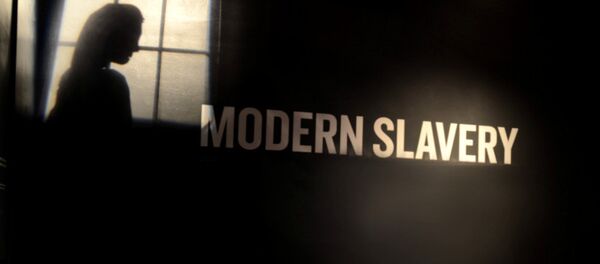Their accommodation of choice was the luxury suite in the Conrad Hotel in Brussels, while their — at least — twenty female servants, whom they brought along with them, waited on them 24 hours a day.
But in 2008, their lifestyle was met with an abrupt interruption.
One of their servants escaped and went to the police.
Her story was one of long-term suffering. She claimed that she and the other servants were forced to work long hours, sometimes without enough food, and were not provided beds to sleep on, and had their visas confiscated from them.
The Belgium police launched an investigation and found that the women were indeed living in "inhumane conditions".
However, nearly a decade later Sheikha al-Nahyan and her seven daughters have not been convicted on any crimes.
They are now all facing trial, but their lawyers continue to maintain that proceedings against them are unfair and illegal.
Sheikha al-Nahyan is a member of the ruling family of Abu Dhabi, and their influence extends internationally.
Sheikh Mansour bin Zayed al-Nahyan is the owner of Manchester City football club in England.
The royal family's lawyer repeatedly claimed Belgium police had violated the princesses' rights by searching their hotel rooms.
However, the Belgium justice system is now pressing ahead with the case. The women face charges of human trafficking and breaching Belgian labor regulations.
If the al-Nahyan princesses are convicted, the ruling could set a significant precedent against modern slavery.
Human rights activists accuse several Gulf States of supporting modern slavery through a servant system called Kafala, active in UAE, Saudi Arabia and Bahrain.
The kafala system is a form of human trafficking — @FIFAcommust address this! https://t.co/jeVOAG5zMa
— Labor Rights Forum (@ILRF) May 11, 2017
It allows employers to become the legal guardian of servants who are allowed to be beaten. All such servants must also seek permission from their employees before being free to seek new employment.
@The_NewArab The Kafala System needs to end, its nothing more than indentured servitude; modern slavery
— Honalee Elkan (@No_Mirth) May 3, 2017
However, some European human rights groups fear that the case has already been delayed for too long, and that Kafala will be allowed to persist.
Speaking to German newspaper Deutsche Welle, a spokeswoman for Belgian human rights organization Myria, Patricia LeCocq, said:
"If the court decides there is enough evidence to support a charge of human trafficking, the accused may have to pay compensation to their employees and may even face a prison sentence.
"But the problem is that this case is already several years old. Even if the princesses are convicted, chances are the verdict could be very mild," she said.




